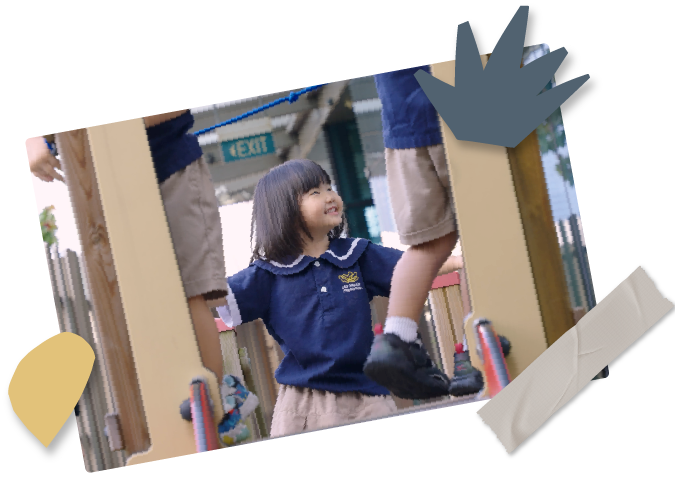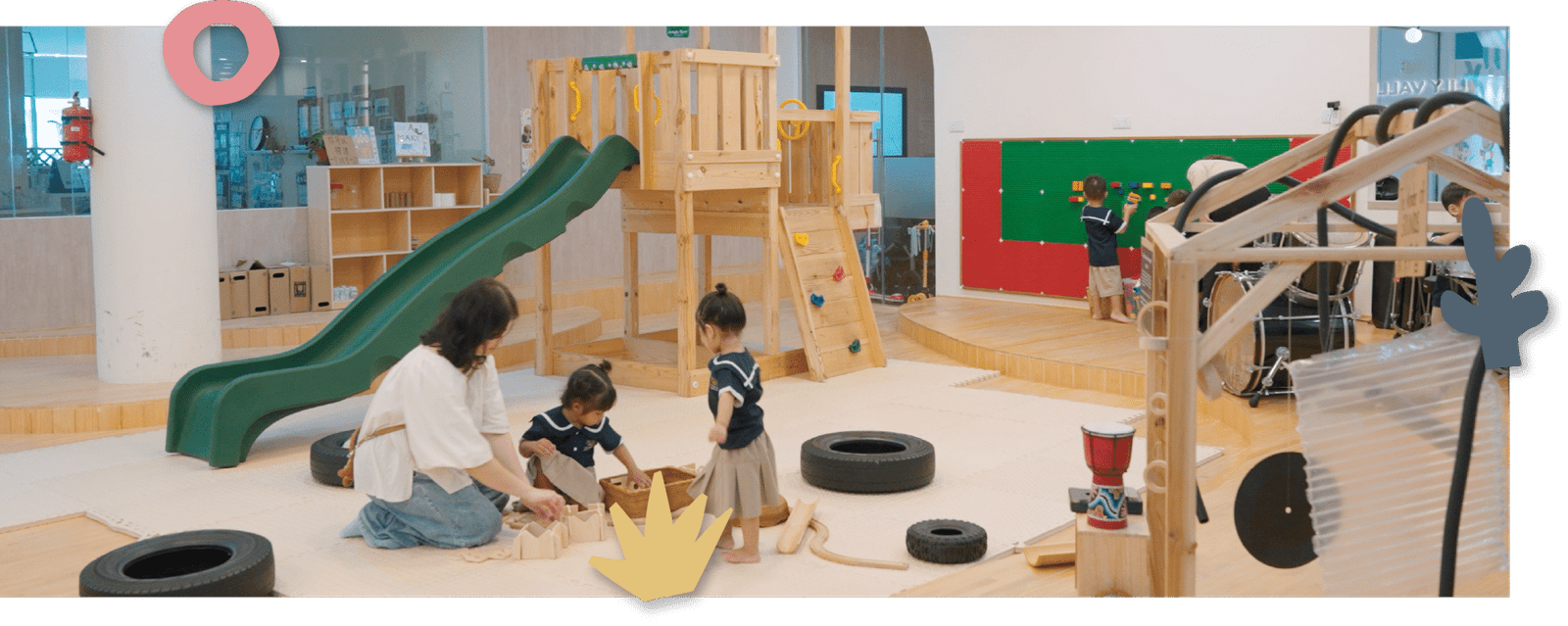
Academic vs Play-Based Preschool: Which Approach Is Best for Your Child?
Play-Based Approach
Last updated on 30 Aug 2025

Play-Based Approach
Last updated on 30 Aug 2025
Academic vs Play-Based Preschool: Which Approach Is Best for Your Child?
Play-Based Approach
Last updated on 30 Aug 2025

The Reggio Emilia approach is among the most popular early education approaches worldwide. If you’re a parent looking into preschool options for your child, chances are you’ve already come across it.
What makes it special? It doesn’t focus on only academics or only on play – Reggio Emilia brings together every part of a child’s growth, from thinking skills to emotional development.
This means children don’t just get ready for formal learning in primary school and beyond, they also build key traits like confidence, creativity and resilience that they’ll carry into the future.
To learn more about how the Reggio Emilia approach works, read on. This may help you decide if it’s the best approach for your little one.

The Reggio Emilia approach is among the most popular early education approaches worldwide. If you’re a parent looking into preschool options for your child, chances are you’ve already come across it.
What makes it special? It doesn’t focus on only academics or only on play – Reggio Emilia brings together every part of a child’s growth, from thinking skills to emotional development.
This means children don’t just get ready for formal learning in primary school and beyond, they also build key traits like confidence, creativity and resilience that they’ll carry into the future.
To learn more about how the Reggio Emilia approach works, read on. This may help you decide if it’s the best approach for your little one.
Common Activities in Academic Preschools
Most of the typical activities in academic-focused preschools are teacher-directed or teacher-assigned. They also generally aim to build a strong foundation in core subjects.
Examples of such activities include these:
Pros and Cons of Academic Preschools
One of the key advantages of the academic preschool model is that it familiarises children with formal classroom routines and structures early on. In this way, the child is prepared for the transition to Primary 1 well ahead of time.
The approach also encourages early mastery of tangible skills. These include reading, writing, and counting. Again, early acquisition of such skills can help with the primary school transition later.
However, this model also tends to leave less time for unstructured or free play. Children may also begin to feel pressure to perform academically very early.

The play-based preschool typically uses a child-led model of learning. You can find an example of this in Lily Valley’s own Reggio Emilia-inspired play-based approach, where play isn’t just a pastime but a crucial tool for development.
You can see the difference between academic and play-based childhood learning even in the environments. Play-based preschools have facilities designed to support this educational philosophy.
For example, we have specialised learning ateliers in Lily Valley that encourage children’s experimentation and discovery. In these dedicated learning spaces, they can independently explore their interests and turn curiosity and fun into vehicles for profound learning.
Common Activities in Play-Based Preschools
Play-based preschools often have open-ended activities. This is because learning and inquiry are driven by the children’s interests.
Here are examples of such activities:
Pros and Cons of Play-Based Preschools
One of the top play-based preschool benefits vs. academic ones is that the former can more easily build love of learning. Children associate discovery and development with activities that actually interest them from the beginning.
In addition to that, the approach excels at nurturing creativity and imagination. Children can pursue all sorts of avenues and their learning is driven by their own curiosity.
This can also hone lateral thinking and problem-solving skills early on, as spoonfeeding and memorisation of fixed answers or structures gives way to the process of discovering them.
The approach’s encouragement of collaborative play also helps children gain crucial social skills. What’s more, natural experiences lead them to early development of emotional regulation, which is another of the big benefits of play-based preschooling.
A possible drawback of this approach is that it can lead to a longer adjustment period during the transition to Primary 1 compared to academic preschool approaches.
Some also note that it can be more complex to measure their child’s progress in hard skills like numeracy and literacy.

Base Philosophy
The academic curriculum defines education as mastery of specific skills early to prepare for primary school. The play-based curriculum defines it as nurturing the whole child – covering social, emotional, cognitive, and physical growth all at once.
Curriculum Design
The academic preschool will often follow a set curriculum with predefined learning goals, often aligned with national standards. The play-based preschool will often use a flexible and emergent curriculum shaped by children’s interests and progress.
Teaching Methodology
Academic preschools have teachers who lead and direct learning activities in planned sequences. Play-based preschools have teachers who facilitate and observe learning with guidance instead of rigid direction.
Role of Play
Academic preschools will treat play as an activity separate from learning. Play-based ones integrate play into every part of the day and see it as a crucial tool for development.
Progress and Development Tracking
Academic preschools measure progress through standardised assessments and checklists. Play-based preschools measure it through qualitative observations, portfolio assessments, and similar records.
Everyday Learning Environment
Academic preschool classrooms look similar to primary school ones, with desks and layouts designed for direct instruction. Play-based ones tend to be more open and flexible, with materials and corners inviting imaginative play.

As noted earlier, the right preschool is generally the one that serves your child’s individual needs and your family’s educational values. Try these tips to identify it:
If you want to explore the play-based approach in particular, consider reaching out to us at Lily Valley. Our Reggio Emilia-inspired approach uses play and curiosity to empower children into becoming confident and creative learners.
Schedule a school tour to experience our nurturing environment firsthand. Contact us today to learn more.